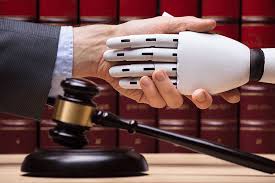How AI Is Transforming Legal Practice in Firms and Courts

Artificial Intelligence (AI) is dramatically reshaping the legal profession, revolutionizing how law firms and courts operate. In 2025, AI has moved beyond conceptual promise to become an indispensable tool that enhances productivity, efficiency, and access to justice.
AI in Law Firms: Streamlining Routine Work
AI now assists legal professionals in automating time-consuming tasks like document review, legal research, contract analysis, and drafting. For example, according to the 2025 Thomson Reuters’ Future of Professionals Report, 77% of legal professionals use AI for document review, 74% for legal research, and 59% for drafting briefs and memos. AI tools can analyze vast databases quickly, pinpoint relevant case law, and summarize complex materials, saving lawyers hundreds of hours annually. Contract management platforms employ AI to identify deviations from standard clauses and suggest optimal language, accelerating transactional workflows. This automation frees lawyers to focus on strategic, client-facing tasks requiring human judgment.
AI in Courts: Enhancing Legal Proceedings
Courts increasingly leverage AI for case management, evidence analysis, and predicting case outcomes. AI algorithms sift through massive electronic discovery (eDiscovery) data to identify pertinent documents, expediting pre-trial procedures. Some jurisdictions use AI to assess the likelihood of litigation success or help judges with sentencing and bail decisions, though ethical safeguards remain critical. AI-powered analytics provide valuable insights into litigation trends and judicial behaviour, enabling lawyers to formulate more informed strategies.
Ethical and Practical Considerations
Despite its benefits, AI adoption raises concerns about algorithmic bias, confidentiality, and “hallucination,” where AI tools generate false information. Legal professionals must balance the efficiencies AI offers with ethical obligations, ensuring that AI outputs are carefully reviewed and integrated responsibly. Law schools have begun incorporating AI ethics, teaching future lawyers to harness AI’s power without compromising professional standards.
The Future: AI as a Legal Co-Pilot
The future legal landscape envisions AI as an omnipresent co-pilot embedded in daily workflows—from drafting pleadings to managing client communications. Firms that strategically implement AI continue to enhance client service, reduce costs, and gain competitive advantage. Emerging AI innovations, like retrieval-augmented generation and AI reasoning models, promise even deeper improvements in legal research quality and productivity.
Conclusion
AI is not replacing lawyers but empowering them to operate more efficiently and insightfully. It transforms repetitive, routine tasks into streamlined processes, allowing legal professionals and courts to focus on complex, nuanced legal reasoning and advocacy. As AI becomes integral to legal practice, those who adapt thoughtfully will drive the profession’s evolution, enhance justice delivery, and redefine the lawyer’s role in the digital age.
Keep Learning!
Join our WhatsApp group for more updates!
Visit Legalwiki.co for more legal updates.




